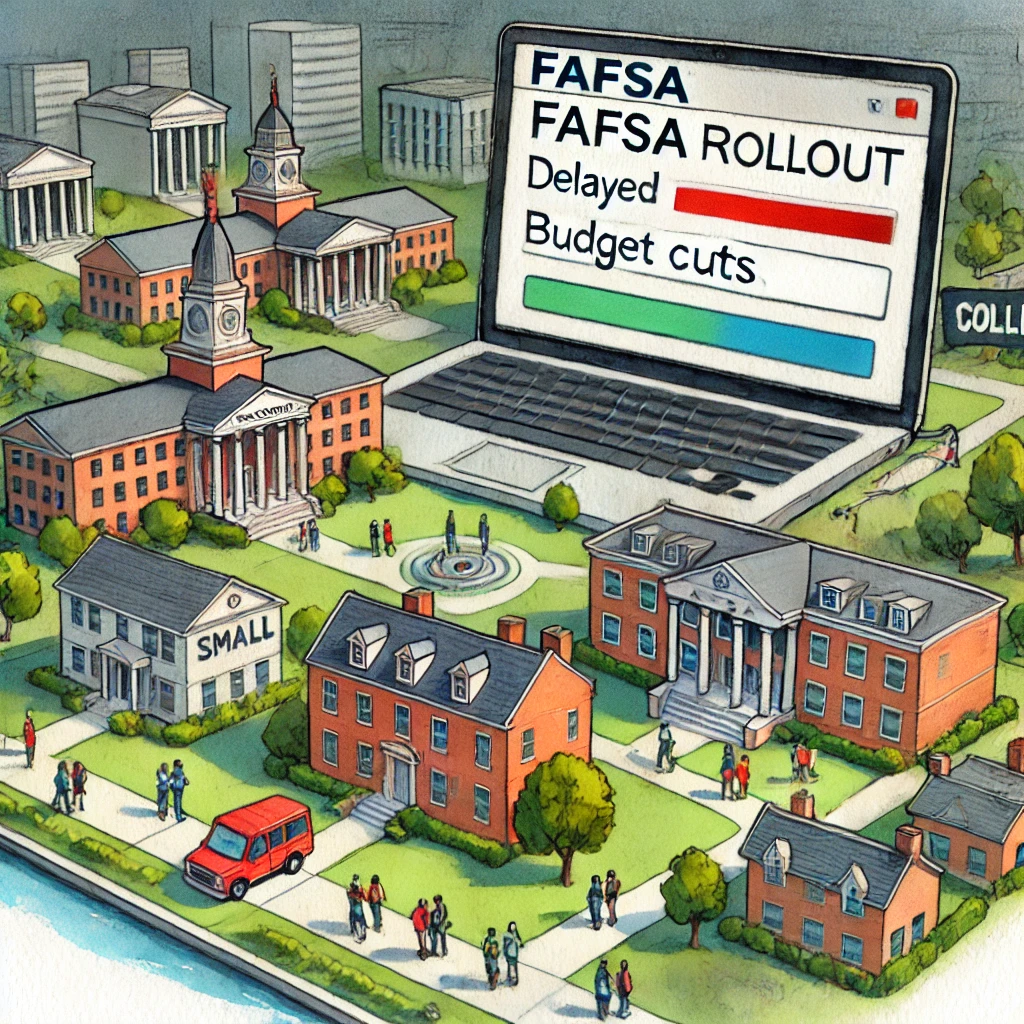The U.S. Department of Education’s delayed rollout of the new Free Application for Federal Student Aid (FAFSA) has compelled some smaller institutions to implement program cuts, even as national university enrollment rates show a promising increase.
Delayed FAFSA Rollout
The new online FAFSA form, designed to streamline the federal aid application process, was delayed by several months, becoming available in January 2024 instead of the usual fall timeline. This postponement, coupled with technical issues, adversely affected enrollment at certain institutions.
Impact on Smaller Institutions
Lindenwood University, a private institution in Missouri, reported a 12% drop in projected fall enrollment and subsequently announced a 10% reduction in its operating budget. Justin Monk, director of student and institutional aid policy at the National Association of Independent Colleges and Universities, noted that the flawed FAFSA rollout compounded ongoing enrollment challenges since the COVID-19 pandemic.
Federal Response
In response to the rollout issues, Education Secretary Miguel Cardona unveiled an eight-point plan in May. This plan includes a review of the Federal Student Aid office, restructuring senior leadership reporting protocols, and establishing a new IT innovation team to address technical issues.
National Enrollment Trends
Despite the challenges faced by smaller institutions, national university enrollment increased by 2.5% this spring, according to the National Student Clearinghouse Research Center. Community colleges experienced the most significant growth, with a 6.2% rise compared to spring 2023.
Persistence and Retention Rates
The National Student Clearinghouse Research Center also reported an improvement in student persistence and retention rates. The national persistence rate for students who started college in fall 2022 rose to 76.5%, nearly a full percentage point increase over the fall 2021 cohort. This data suggests a positive trend in student retention and engagement.
Expert Insights
Experts suggest that while the FAFSA delays have posed significant challenges, the overall resilience of the higher education sector is evident in the growing enrollment numbers and improved retention rates. However, they caution that continued attention to federal aid processes and institutional support is crucial for sustaining these positive trends.
Conclusion
The recent FAFSA rollout issues underscore the critical need for robust and reliable federal aid systems to support student enrollment and retention. While national enrollment figures are encouraging, the experiences of smaller institutions like Lindenwood University highlight the ongoing challenges within the higher education landscape. Continued efforts to improve federal aid processes and institutional support will be essential in fostering a more resilient and inclusive educational environment.





